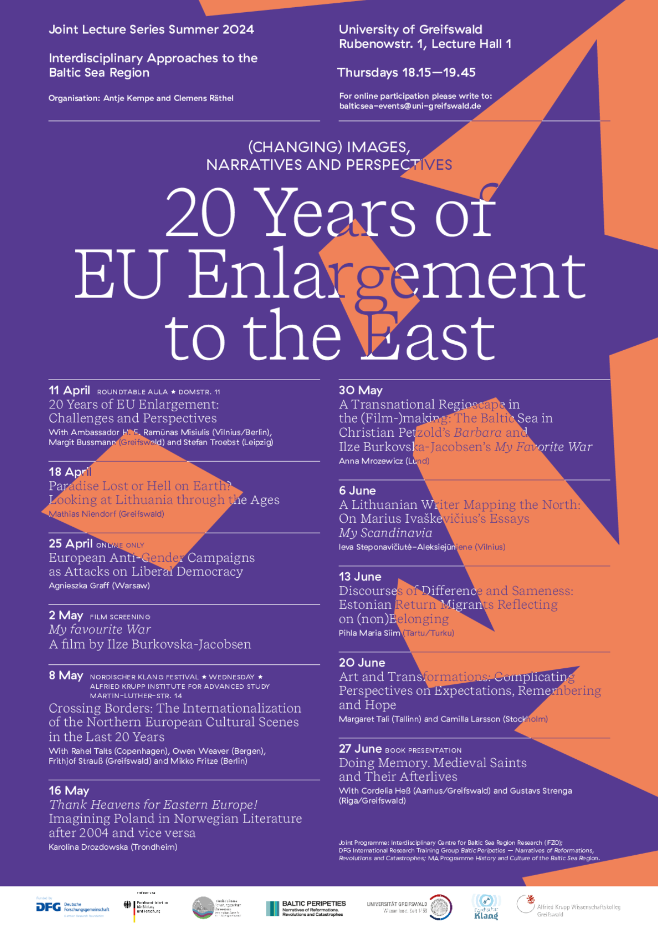Speakers: Margaret Tali (Tallinn) and Camilla Larsson (Stockholm)
Chair: Antje Kempe (Greifswald)
Memory, Community, Locality: The Shifting Discourse of Art in the Baltic States
Margaret Tali, Tallinn University/ Estonian Academy of Arts
In this talk, I will outline a recent shift in understanding the ways that art participates in and contributes to processes of history writing in the Baltic context. This shift is related to the diversification of local communities and their differing memories, but also touches upon the imagined audience for art, its relationship to local communities and its memories as well as the self-positioning of artists. I will delineate this shift through selected examples from Baltic art and focus further on the exhibition “My Poland. On Remembering and Forgetting” (2015) at the Tartu Art Museum. The exhibition and the charged international public debates that it generated will serve as my key example in considering the transnational and transcultural implications of this shift on discourses of memory and art.
Margaret Tali is an art historian and cultural theorist who works as a senior researcher at Tallinn University and Estonian Academy of Arts, Institute of Art History and Visual Culture. Her research interests include processes of decolonization, museum histories, environmental history and curating difficult histories. She has co-initiated the project “Communicating Difficult Pasts” (2019-2024) that focuses on colonial histories of the Baltic region.
The Travelling Vardø Seminar in the Sea of “Opportunities”
Camilla Larsson, Södertörn University
This talk analyzes the case of the travelling Vardø Seminars, running between 1988-2005, the period leading up to the EU enlargement to the East. It was a grassroot initiative gathering artists, researchers, and critics from the whole Baltic Sea region to share ideas, expectations, and hopes for the future, supported by private actors as well as municipal, state, and intergovernmental funding bodies. Via the Vardø Seminars I will discuss how art events were invested by interests of the Nordic countries that acted with financial support to not only promote free exchange between artists and researchers but had other foreign policy goals on their agenda. The paper will examine how art exhibitions are nodes where different kinds of interests intersect and serve many purposes, and thus unpack how the Sea of “Opportunities” can be understood in several, even contradictory ways.
Camilla Larsson (Ph.D., Södertörn University) is currently a post-doctoral researcher at Södertörn University, investigating Polish art exhibited in Sweden from the Cold War period until today. Her research interests include critical historiography, cross-border exchanges, exhibition histories, performance art, theories of performativity and the history and theories of curating.
Thursdays, 18.15–19.45
Rubenowstr. 1, Lecture Hall 1
University of Greifswald
For online participation, please write to: balticsea-eventsuni-greifswaldde
Organisation: Antje Kempe & Clemens Räthel

